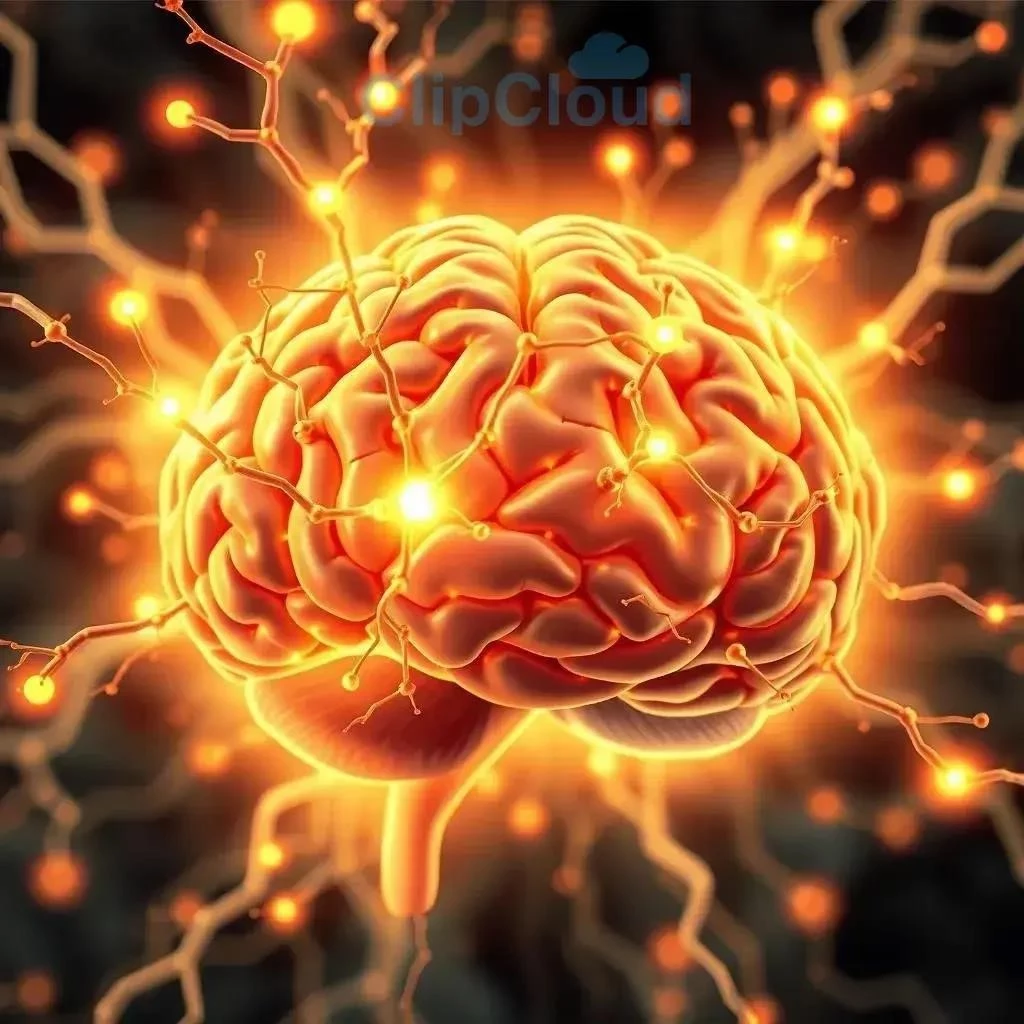The Brain-Boosting Power of Nutrition
Fueling your brain with the right nutrients is crucial for optimal cognitive function. Just like your body needs essential vitamins and minerals to thrive, so does your brain. Proper nutrition can enhance memory, focus, and overall mental clarity. By providing your brain with the building blocks it needs, you can support its complex processes and protect it from age-related decline. Discover the power of food to unlock your brain’s full potential.
Essential Vitamins and Minerals for Cognitive Function
Specific vitamins and minerals play crucial roles in supporting optimal brain health and cognitive function. Think of them as the essential building blocks for a sharp mind. Ensuring adequate intake of these nutrients can significantly impact various aspects of cognitive performance, from memory and focus to overall mental clarity.
B Vitamins: The Brain’s Powerhouse
B vitamins are essential for a wide range of brain functions, including energy production, neurotransmitter synthesis, and protecting against cognitive decline. Key B vitamins for brain health include:
- B6: Involved in the production of neurotransmitters like serotonin and dopamine, which regulate mood and cognitive function.
- B9 (Folate): Crucial for cell growth and development, and plays a role in preventing cognitive impairment.
- B12: Essential for maintaining nerve cell health and preventing nerve damage, which can lead to cognitive decline.
Vitamin D: The Sunshine Vitamin for the Brain
Vitamin D receptors are found throughout the brain, suggesting its importance in cognitive function. Adequate vitamin D levels are associated with improved memory, processing speed, and executive function. Sunlight is the best source, but supplementation can help during winter months or for those with limited sun exposure.
Iron: The Oxygen Carrier
Iron plays a vital role in transporting oxygen to the brain, which is crucial for energy production and cognitive function. Iron deficiency can lead to fatigue, difficulty concentrating, and impaired memory. Including iron-rich foods in your diet, such as red meat, leafy green vegetables, and beans, can help maintain optimal iron levels.
Zinc: The Memory Mineral
Zinc is involved in various brain processes, including learning, memory, and nerve signaling. It also plays a role in protecting brain cells from oxidative stress. Good sources of zinc include oysters, pumpkin seeds, and beef.
Magnesium: The Relaxation Mineral
Magnesium is essential for nerve function and plays a role in regulating mood and stress levels. It also contributes to healthy sleep, which is crucial for cognitive function. Leafy green vegetables, nuts, seeds, and whole grains are excellent sources of magnesium.
By prioritizing a diet rich in these essential vitamins and minerals, you can provide your brain with the necessary tools to function at its best. Consult with a healthcare professional or registered dietitian to determine the appropriate intake levels for your individual needs and consider supplementation if dietary intake is insufficient.
Omega-3 Fatty Acids: The Cornerstone of Brain Health
Omega-3 fatty acids are essential fats that play a crucial role in maintaining optimal brain health throughout life. These beneficial fats are integral components of brain cell membranes, influencing their fluidity and communication. They also possess potent anti-inflammatory properties, protecting the brain from damage and promoting healthy cognitive function. Think of omega-3s as the essential building blocks for a resilient and sharp mind.
DHA: The Brain’s Structural Fat
Docosahexaenoic acid (DHA) is the most abundant omega-3 fatty acid in the brain and is crucial for its structure and function. DHA supports healthy brain cell membranes, facilitating efficient communication between neurons. It also plays a vital role in neurotransmission, the process by which brain cells communicate with each other. Adequate DHA levels are associated with improved memory, cognitive function, and reduced risk of age-related cognitive decline.
EPA: The Brain’s Protector
Eicosapentaenoic acid (EPA) is another important omega-3 fatty acid that offers significant benefits for brain health. EPA possesses potent anti-inflammatory properties, helping to protect the brain from damage caused by oxidative stress and inflammation. It also supports healthy mood regulation and can help reduce symptoms of depression and anxiety. Maintaining optimal EPA levels is essential for preserving cognitive function and promoting emotional well-being.
Sources of Omega-3s: Fueling Your Brain
While our bodies can produce some omega-3s, we must obtain the majority from our diet. Fatty fish, such as salmon, tuna, and mackerel, are excellent sources of both DHA and EPA. Plant-based sources, such as flaxseed, chia seeds, and walnuts, provide ALA (alpha-linolenic acid), which the body can convert to DHA and EPA, although the conversion rate is limited. Consider incorporating these foods into your diet regularly to ensure adequate omega-3 intake.
Supplementation: Bridging the Gap
If dietary intake is insufficient, omega-3 supplements can be a convenient way to boost your levels. Fish oil supplements are a popular choice, providing a concentrated dose of DHA and EPA. Algae-based supplements are a suitable vegan alternative, offering a direct source of DHA. Consult with a healthcare professional to determine the appropriate dosage and type of supplement for your individual needs.
By prioritizing omega-3 fatty acids in your diet or through supplementation, you can provide your brain with the essential building blocks it needs to thrive. These beneficial fats support optimal cognitive function, protect against age-related decline, and promote overall brain health throughout life. Invest in your brain health by making omega-3s a cornerstone of your nutritional strategy.
Antioxidants: Protecting Your Brain from Oxidative Stress
Our brains are constantly working, requiring a significant amount of oxygen to fuel their complex processes. This high metabolic activity, however, produces free radicals, unstable molecules that can damage brain cells through oxidative stress; Think of oxidative stress as rust accumulating on a car – it gradually wears down the system. Antioxidants act as protective shields, neutralizing these harmful free radicals and safeguarding brain health.
The Antioxidant Powerhouse: Colorful Fruits and Vegetables
Nature provides a vibrant array of antioxidant-rich foods, primarily found in colorful fruits and vegetables. These foods contain various phytonutrients, such as flavonoids, carotenoids, and vitamin C, which act as potent free radical scavengers. Blueberries, known as “brain berries,” are packed with antioxidants that protect against cognitive decline. Dark leafy greens, like spinach and kale, offer a wealth of protective compounds. Including a variety of colorful produce in your diet ensures a diverse range of antioxidants to support optimal brain health.
Vitamin E: The Cell Membrane Protector
Vitamin E is a fat-soluble vitamin that acts as a powerful antioxidant, protecting cell membranes from damage caused by free radicals. It plays a crucial role in maintaining the integrity of brain cells, which are particularly vulnerable to oxidative stress. Nuts, seeds, and vegetable oils are good sources of vitamin E.
Vitamin C: The All-Around Protector
Vitamin C is a water-soluble vitamin and a potent antioxidant that protects against oxidative stress throughout the body, including the brain. It also plays a role in collagen production, which is important for maintaining the health of blood vessels that supply the brain with oxygen and nutrients. Citrus fruits, berries, and peppers are excellent sources of vitamin C.
Selenium: The Enzyme Booster
Selenium is a trace mineral that works in conjunction with vitamin E to protect against oxidative stress. It is also essential for the function of selenoproteins, enzymes that play a crucial role in antioxidant defense. Brazil nuts, seafood, and whole grains are good sources of selenium.
The Importance of a Holistic Approach
While individual antioxidants offer significant benefits, a holistic approach to nutrition is crucial for maximizing brain health. Focus on consuming a balanced diet rich in a variety of antioxidant-rich foods. This ensures a synergistic effect, where different antioxidants work together to provide comprehensive protection against oxidative stress. By prioritizing antioxidant intake, you can safeguard your brain from damage and maintain optimal cognitive function throughout life. Think of it as building a robust defense system for your brain, protecting it from the daily wear and tear of oxidative stress.
The Role of a Balanced Diet in Mental Clarity
A balanced diet is the cornerstone of a healthy mind. Just as a car requires the right fuel to run smoothly, your brain relies on a consistent supply of essential nutrients to function optimally. A balanced diet provides the necessary building blocks for neurotransmitter production, nerve cell communication, and overall cognitive function. It also helps regulate blood sugar levels, ensuring a steady supply of energy to the brain, promoting sustained mental clarity and focus.
The Mediterranean Diet: A Brain-Boosting Blueprint
The Mediterranean diet, rich in fruits, vegetables, whole grains, lean protein, and healthy fats, serves as an excellent model for brain-healthy eating. This dietary pattern emphasizes whole, unprocessed foods, providing a wealth of essential nutrients while minimizing processed foods, sugary drinks, and unhealthy fats. Studies have shown that adherence to a Mediterranean-style diet is associated with improved cognitive function, reduced risk of cognitive decline, and enhanced mental clarity.
Prioritizing Whole Foods: Nourishing Your Brain from the Inside Out
Choosing whole, unprocessed foods over processed options is crucial for optimal brain health. Whole foods are packed with essential vitamins, minerals, antioxidants, and fiber, providing the necessary fuel for cognitive function. Processed foods, on the other hand, are often laden with added sugars, unhealthy fats, and artificial ingredients, which can negatively impact brain health and contribute to mental fog.
Hydration: The Brain’s Essential Fluid
Water is essential for all bodily functions, including brain health. Dehydration can impair cognitive function, leading to difficulty concentrating, memory problems, and reduced mental clarity. Aim to drink plenty of water throughout the day to keep your brain hydrated and functioning at its best.
Regular Meals: Fueling Consistent Cognitive Function
Maintaining regular meal patterns helps stabilize blood sugar levels, providing a consistent supply of energy to the brain. Skipping meals can lead to fluctuations in blood sugar, resulting in energy dips, difficulty concentrating, and impaired cognitive function. Prioritize regular, balanced meals to ensure your brain receives the fuel it needs for sustained mental clarity.
By embracing a balanced diet rich in whole foods, prioritizing hydration, and maintaining regular meal patterns, you can create a foundation for optimal brain health and sustained mental clarity. Think of your diet as an investment in your cognitive well-being, providing the necessary tools for your brain to thrive. Nourishing your mind through balanced nutrition is a powerful step towards unlocking your full cognitive potential.
Lifestyle Factors that Complement Nutritional Strategies
While nutrition plays a crucial role in brain health, it’s not the only piece of the puzzle. Several lifestyle factors can significantly impact cognitive function and complement your nutritional strategies. By incorporating these lifestyle habits into your routine, you can create a synergistic approach to brain health, maximizing your cognitive potential and promoting long-term mental clarity.
Regular Exercise: The Brain’s Natural Booster
Physical activity is not just beneficial for your body; it’s a powerful brain booster. Exercise increases blood flow to the brain, delivering oxygen and nutrients essential for optimal function. It also stimulates the release of growth factors, which support the growth and survival of brain cells. Regular exercise has been linked to improved memory, enhanced cognitive function, and reduced risk of cognitive decline.
Quality Sleep: The Brain’s Restorative Power
Sleep is essential for consolidating memories, clearing out toxins, and restoring brain function. During sleep, our brains process information gathered throughout the day, strengthening neural connections and preparing us for optimal cognitive performance. Aim for 7-9 hours of quality sleep each night to support cognitive function and maintain mental clarity.
Stress Management: Protecting Your Brain from Cognitive Overload
Chronic stress can take a toll on brain health, impairing cognitive function and increasing the risk of cognitive decline. Implementing stress management techniques, such as mindfulness, meditation, or deep breathing exercises, can help mitigate the negative impact of stress on the brain. Prioritizing stress management is crucial for maintaining mental clarity and protecting cognitive function.
Cognitive Stimulation: Keeping Your Mind Sharp
Just like your body needs exercise, your brain benefits from regular cognitive stimulation. Engaging in mentally challenging activities, such as learning new skills, playing puzzles, or reading, can help strengthen neural connections and enhance cognitive function. Make lifelong learning a priority to keep your mind sharp and promote mental agility.
Social Connection: The Brain’s Social Network
Maintaining strong social connections is essential for overall well-being, including brain health. Social interaction stimulates cognitive function, reduces the risk of cognitive decline, and promotes emotional well-being. Prioritize social engagement to nurture your brain and maintain mental clarity.
By incorporating these lifestyle factors alongside a balanced nutritional strategy, you can create a holistic approach to brain health, maximizing your cognitive potential and promoting long-term mental well-being. Think of these lifestyle habits as complementary pieces to the puzzle, working synergistically with nutrition to create a vibrant and resilient mind. Invest in your brain health by embracing a lifestyle that supports optimal cognitive function and sustained mental clarity.






